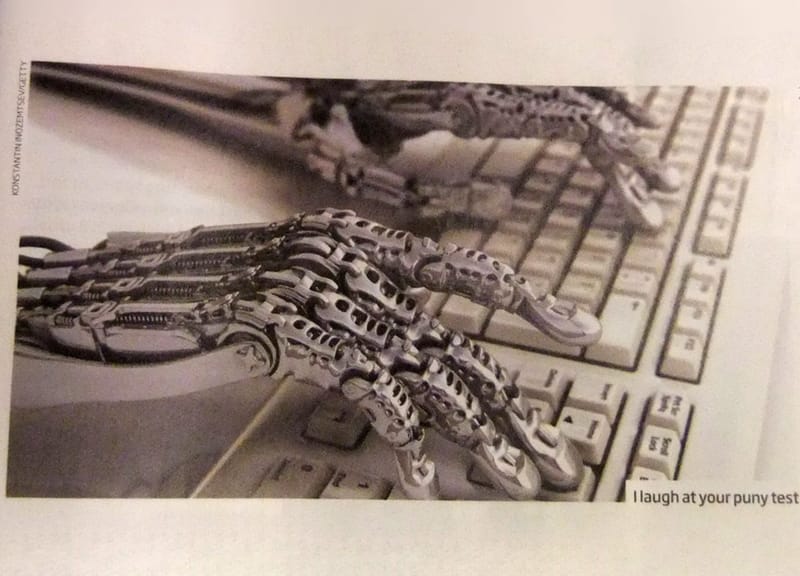Even The Millionaires Are Fed Up
How to speak to a hostile crowd

Some weeks ago, I was sitting on stage with an economist from the World Trade Organisation and a banker from UBS. We were opening a small, one-day conference for the private aviation industry, and I had been invited to challenge the prevailing macro-economic forecast. I had been surprised to receive the invitation, to say the least, and asked the woman organising the event if she was sure she wanted me there. She laughed: “Hell yeah!” So off I went to the Swiss Alps—by train, of course—to calmly and assuredly explain to a hostile audience that the excellent economic forecast provided was awfully narrow in scope when you factor in resource scarcity, geopolitical instability, nuclear war, climate tipping points and the illusion of material decoupling. In sum, we’re heading for economic collapse by 2050, I said.
The banker disagreed. I told him perhaps he should look at the data before forming an opinion. He recoiled as if I had slapped him, and I wondered how often he is around people who disagree with him. The economist from the WTO offered a middle ground, focusing on the necessity of economic development, and using it as a reason to warn against the injustice of degrowth. I smiled wanly and gave the correct definition of degrowth as a redistribution mechanism to develop the majority world whilst reducing the output of the global north.
Then someone from the audience, fed up with my negative outlook, shouted out that he didn’t necessarily disagree with everything I was saying but he wanted solutions! He’s a capitalist, for god’s sake! What, did I just want to throw away capitalism?
Well, yes. “I agree that capitalism provided benefits last century, but it’s time for something new, and I think that’s exciting rather than limiting.” He shrugged, and the host took the opportunity to close our panel. We left the stage and a woman grabbed me: “You were great, I agree with everything you said!” I listened to her analysis of the state of the world while watching the banker and economist swap business cards.
Strangely enough, lots of them wanted to swap cards with me, too. I spent the next fourteen hours speaking with a range of attendees and was shocked to learn that most of them agreed with me. They applauded my “bravery” for facing a hostile crowd, and thanked me for speaking with them calmly: “You really know what you’re talking about.” I tried patiently to explain that it is simply my job to know this and speak of it and that I was equally grateful for the invitation. But the men insisted on my “huge balls”, whilst the women rolled their eyes at the industry’s “macho dick-swinging”.
The man who had shouted at me from the audience apologised, and spent ten minutes with me lambasting carbon credits. Another, who earlier onstage had, to my horror, called aviation “the life-blood of Europe”, told me he’d been gassed by the police for protesting against Exxon. One told me he’d been so disillusioned after studying international development that he felt the only thing he could do was make a lot of money to protect his family and then buy some influence. None of them felt empowered, and all of them blamed the billionaires. Frankly, the conversations I had were not that different to the rhetoric of my peers, except these were backdropped by the most glorious view over the Swiss Alps.
The conference became a dinner and there was live music and dancing. I love live music and dancing, so I sang and I danced. Some attendees looked confused, others looked relieved. One took me outside and, dragging on her cigarette, said: “Could you imagine if women ruled the world?” We talked about addiction and misogyny. Later, someone high-fived me as I passed and shouted: “I’m five years sober!”
“Congratulations!” I smiled.
The richest man at the party had avoided me all day because “my team told me nothing is off the record”. He was swarmed all evening and I let him be, preferring to sing ABBA with the musician who’d been flown out from Barcelona. We had exchanged nothing except that terse introduction hours earlier, but, when he left, he grabbed me and shouted over the music: “Let’s talk about the environment!” A kiss on each cheek and then he was gone. I figured there were three possible reasons he had changed his tune, one of which was that he hadn’t. But still—wiggle room.
People are people. We like people like us. We like to be right. We like to be seen. We like to enjoy ourselves. We don’t like to be shouted at. We don’t like to be dressed down. We don’t like to be villiainised. Throughout the evening, I learned the biggest reason I had been accepted by the attendees was because just months before they had been shouted at by activists at another industry conference. There had been a moderated discussion between industry professionals and eco-campaigners, who want to ground every plane. Half of the audience walked out.
Someone explained to me: “They didn’t listen to us. They said we provide no public good. We explained why that wasn’t true, but even afterwards they still said simply that they just want to ban us. They weren’t listening.”
I thought of Andreas Malm’s theory about the radical vs moderate flank, and was deeply grateful for the activists. By being radical, they made me look moderate, and because I looked moderate, I was approachable. It’s true I didn’t say anything about banning private jets all day. I even said that I wasn’t here to tell anyone to ban anything, “I’m just here to explain why if you don’t look at the bigger picture none of your investments will mean anything in thirty years.”
Isn’t it funny—what I was saying is radical. It’s not something you hear discussed in the mainstream, and most economists would laugh at me given half the chance. But because I didn’t yell at the private jet industry and because they had been admonished not six months before, they perceived me as someone worth listening to. Had I been the first person they’d heard discuss ecological and economic collapse, no doubt I would have been written off, too. It is only because of the network of activism and the diversity of campaigns that someone like me can walk through the door as a journalist and hold court. Equally, I can only walk through because of the foresight of certain industry professionals to hold that door open and invite me in.
In my interview with Jay Griffiths for Mongabay I asked her what she would do for the world if she had a magic wand. She responded beautifully, saying she would have everyone stay exactly where they are and just focus on changing their niche in the world. It’s why community energy projects like Bristol Energy Coop are critical, and particular activist groups like Lawyers Are Responsible, and pioneers in accountability journalism like HEATED and Drilled. It’s why gathering on the streets to protest genocide is necessary, and activists who organise BDS campaigns. It’s why environmental campaigners in the Amazon are vital, and businesses who are helping farmers in the EU transition away from meat and dairy. It’s why the Danish building industry lobbying the government for tighter climate regulation is as important as the IPCC report they used to figure out what needs to be done.
Collaboration is critical, and allyship may be found in the most surprising corners of the world: on the streets of Monaco, placard in hand, running from the police through gas-choked air.
Planet: Critical is 100% independent and community-powered. If you value it, and have the means, become a paid subscriber today!



